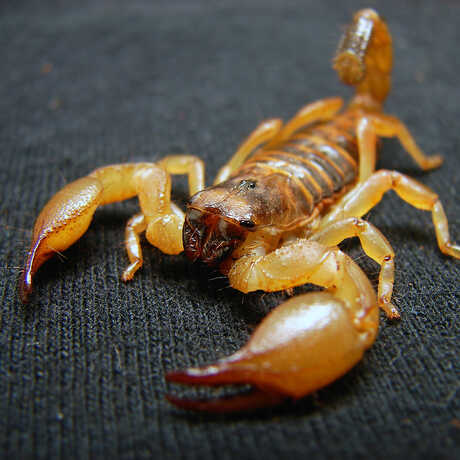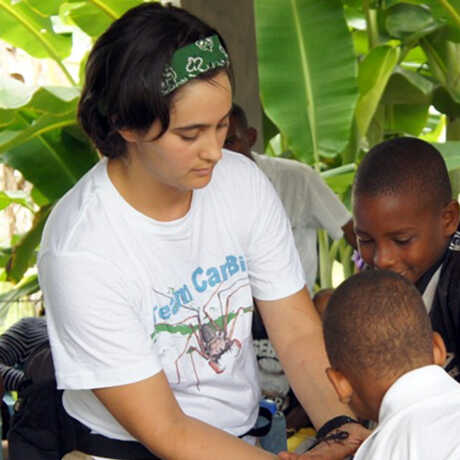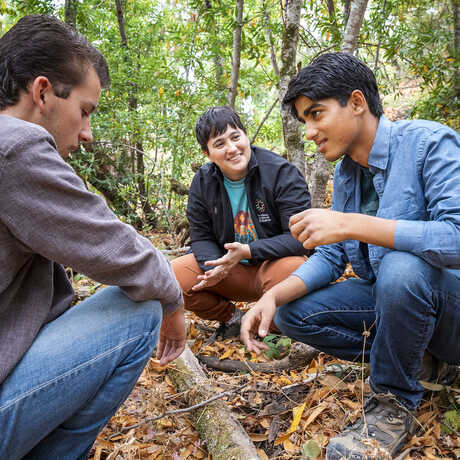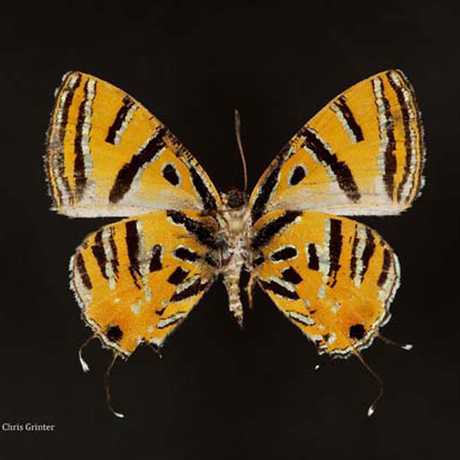Dr. Lauren Esposito started her entomology collection at a young age. As a kid, she had a fondness for exploring the yard, flipping over rocks and storing found insects in egg cartons, although it didn’t occur to her that she might eventually become a scorpion scientist. Esposito grew up in a household with an appreciation for nature and animals—her parents are both biologists—and often visited her grandparents on a remote island in the Bahamas. “The most dangerous things on the island were ants and scorpions, so it was a pretty ideal place for a child to explore,” says Esposito. She spent her time in the Bahamas checking the tide pools every morning, collecting hermit crabs in buckets, and observing the marine life in an artificial reef beneath her grandparents’ dock: “I think I became a biologist there.”
She continued to hone her skills during college, with a summer undergraduate internship in arachnology at the American Museum of Natural History and volunteer work at a field station in the Chihuahuan Desert. By the time she graduated, Esposito was hooked on arachnids—and field work—and returned to AMNH to complete a PhD in arachnology. She followed that with a postdoctoral fellowship studying the biogeography of scorpions in the Caribbean. That project, she says, “combined everything I loved: the Caribbean, being on islands, doing lots of field work, and studying scorpions.”
When an arachnologist position at the Academy opened in 2015, Esposito knew she had to apply. “I’d been trained as a museum scientist since I was 19 years old, and all I wanted to do is museum science. And the Academy, with its opportunities for community engagement and outreach, was always at the top of my list.” Her office is now home to a cockroach (“good for people to touch and hold”); a tailless whip scorpion (“not actually a scorpion, an amblypygid”); and a pair of scorpions that glow with a bluish tint under UV light (“nobody knows why they fluoresce, but since discovering they do, scorpion species discoveries have skyrocketed”). At the time of this writing, Esposito has never been stung as a professional scientist.



